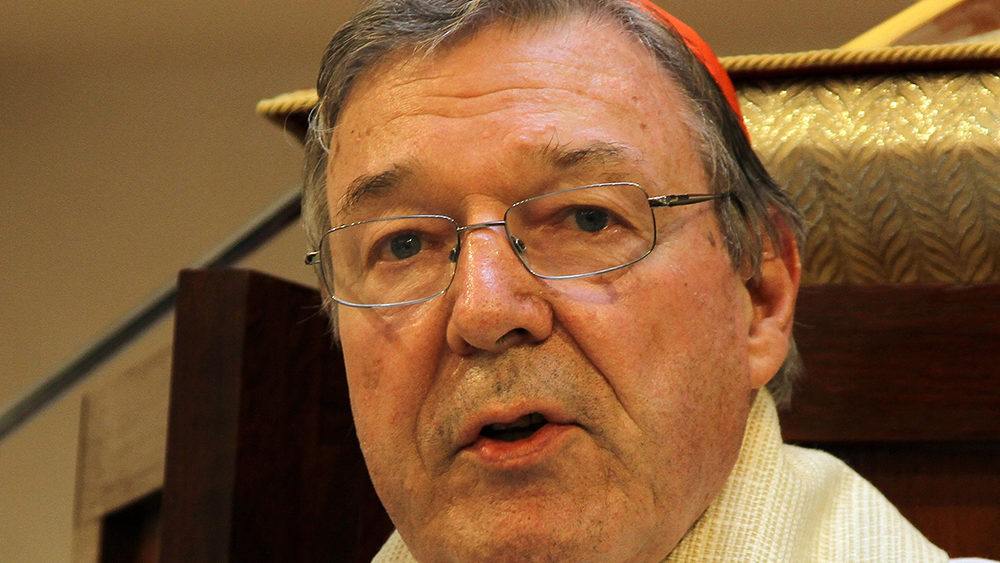Survivors of clergy abuse were genuinely shocked at the High Court overturning the convictions of Cardinal George Pell. It took them by surprise. The legal fraternity had worked out the odds – but not the survivors and their support groups.
Having sat through the two days of the the High Court hearing, and seen the prosecution case collapse, it did not shock me – although I had not predicted the outcome.
This sets up an exquisite dilemma.
Because he has been acquitted on all charges, by a 7-0 majority of the justices of the High Court, Pell is entitled to the presumption of innocence.
But this sets up an exquisite dilemma.
Perhaps Pell’s own words apply: “My own position is that you never disbelieve a complaint. But then it has to be assessed as to see just whether it is valid and true and plausible.”
So do those from Victorian Premier Daniel Andrews (from the other side of a cultural divide): “I make no comment about today’s High Court decision. But I have a message for every single victim and survivor of child sex abuse: I see you. I hear you. I believe you.”
And also this press statement from Mark Coleridge, the president of the Australian Catholic Bishops Conference, which was clearly carefully written to balance announcing the news about Pell: “We also recognise that the High Court’s decision will be devastating for others. Many have suffered greatly through the process, which has now reached its conclusion.”
“The result today does not change the Church’s unwavering commitment to child safety and to a just and compassionate response to survivors and victims of child sexual abuse. The safety of children remains supremely important, not only for the bishops but for the entire Catholic community.
“Any person with allegations of sexual abuse by Church personnel should go to the police.”
With varying success, these statements moved past the moment of George Pell’s acquittal, and the tendency to treat it as some sort of culture war moment.
For Pell, acquittal was, naturally, an extremely important moment.
For a significant number of people, the acquittal of Pell did amount to a symbolic acquittal of his church and Christianity. But for Coleridge (and other bishops), the need to address the distress of survivors, even in the moment, gives a true picture of the reality facing the Catholic and other Churches in Australia.
In all, the Royal Commission into the Institutional Response to Child Sexual Abuse recorded 2,500 survivors of abuse in Catholic Institutions. That was 61 per cent of victims abused in religious institutions, according to Royal Commission statistics. If Catholicism is considered to be roughly 44 per cent of Australian Christianity, according to the 2016 census, then it is clear that it is sadly over represented in those stats. Even so, they leave plenty of room for other denominations to share in the shame.
With even Pell’s legal team saying freely the complainant was a credible witness and certainly is a survivor of abuse, he and Pell are just two persons in a much bigger picture.
“What has been a source of pride and comfort, built by our forebears, no longer captures people’s minds and hearts, and leaves our children indifferent,” Melbourne’s Catholic Archbishop Peter Comensoli said.
“At this time of deep crisis and humiliation, might not it be time to let go of the past and begin anew?”
It may be the best we can do. It is clearly unsatisfactory.
So rather than a continuing culture war, compassion is the main way forward.
This is not to discount topics such as the role of media in the Pell saga, or the legal questions regarding the difficulty in prosecuting historic sexual abuse cases. But simply to say that in considering the large numbers of cases involved for denominations including the Anglicans, Salvation Army and the Uniting/Presbyterian Churches – as well as the Catholics – a key task is doing our very best to respect and support survivors.
We can’t change the past but we can make compassion the centrepiece of our future.
So we don’t need to take sides any longer over George Pell’s Cathedral matter. That case is over. Pell will have to deal with the release the unredacted Royal Commission papers in the near future.
But how do we deal with survivors? Even after millions of dollars were spent on police and legal investigation, we are left only with a “presumption of innocence” rather than a proof of innocence for the Cardinal.
For the many cases of alleged abuse, where a similar amount of money will not be spent, we are left with presumptions only.
Can we practise cognitive dissonance? Can we have two presumptions – of innocence for alleged abusers where no conclusive investigation is possible – and a “presumption of truth” for survivors?
It may be the best we can do. It is clearly unsatisfactory. It will mean groups of supporters gathering around people and bearing different stories. But it is what both Premier Daniel Andrews and Archbishop Coleridge are calling for. How they balance between the two groups is different, but doing the best in a situation where many claims will not be tested legally is where we all must sit.
Email This Story
Why not send this to a friend?


